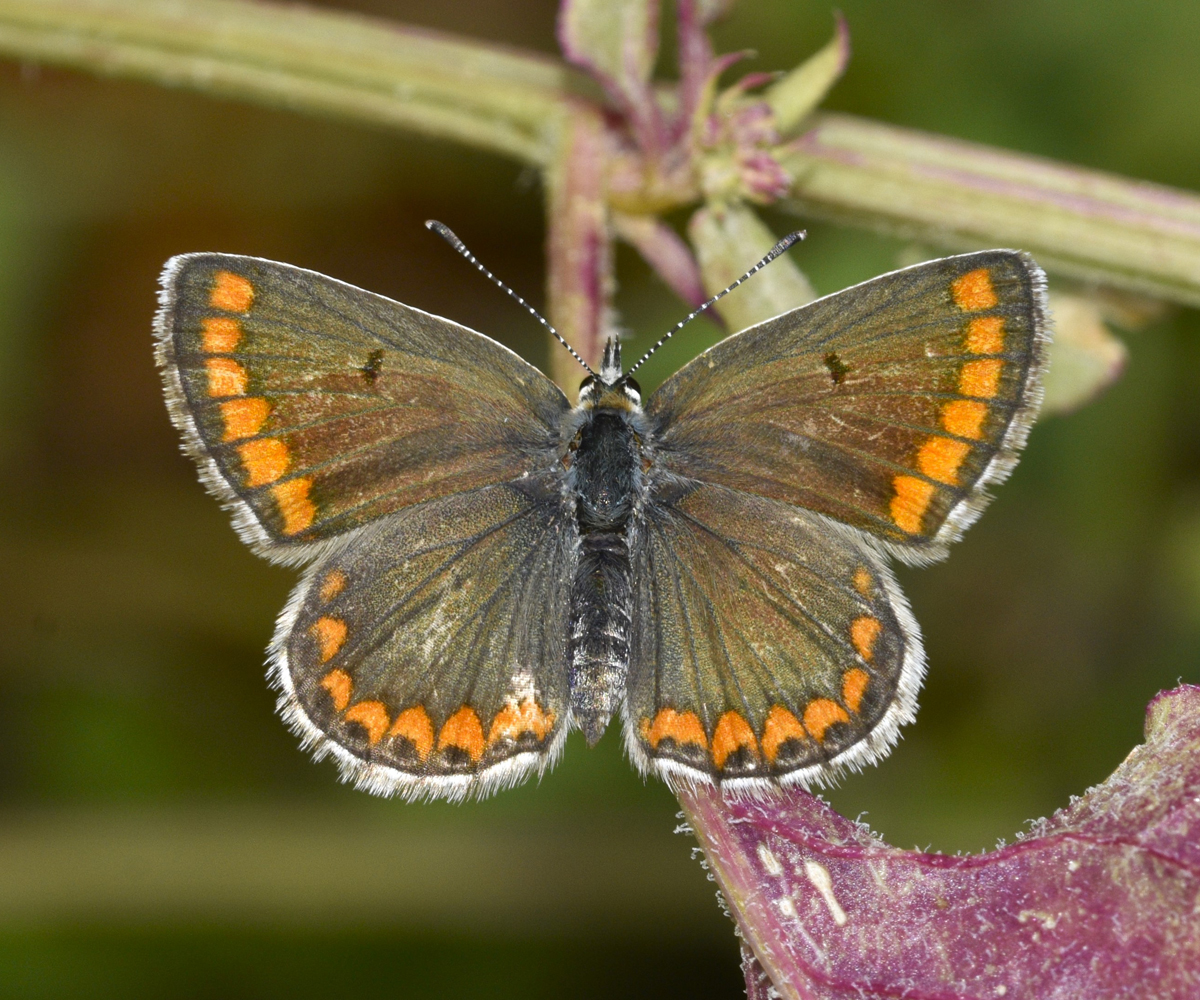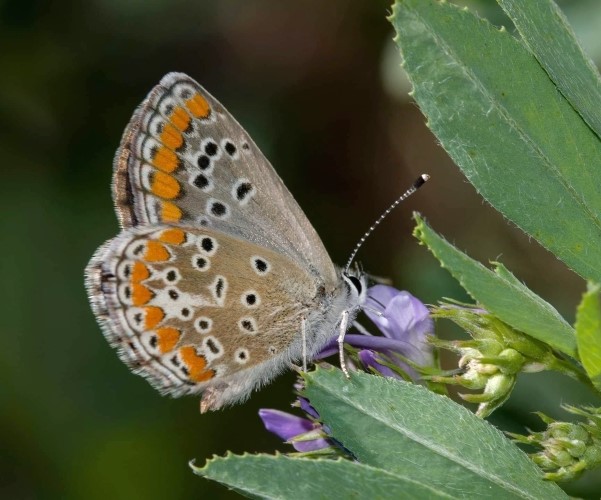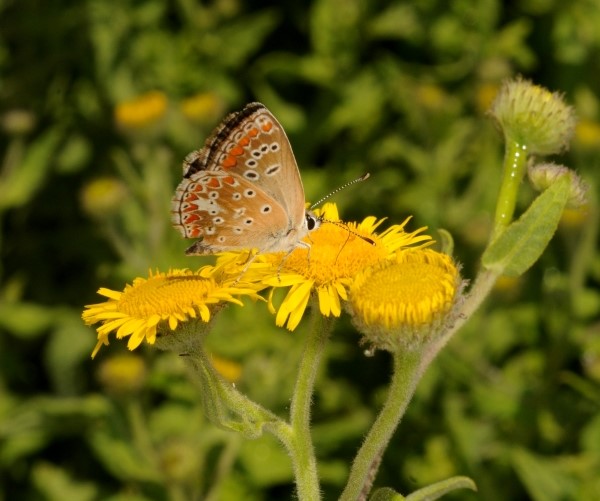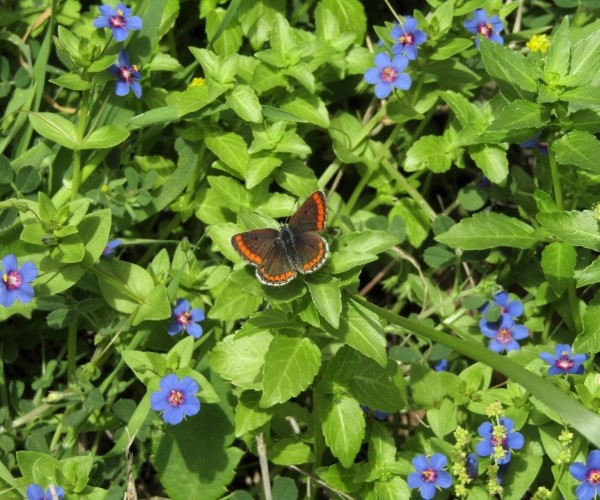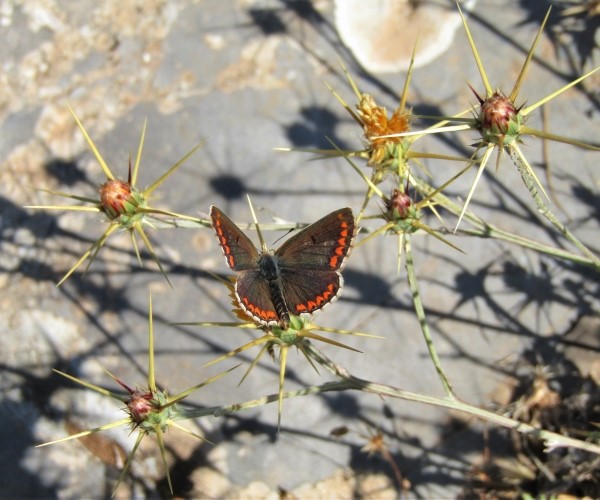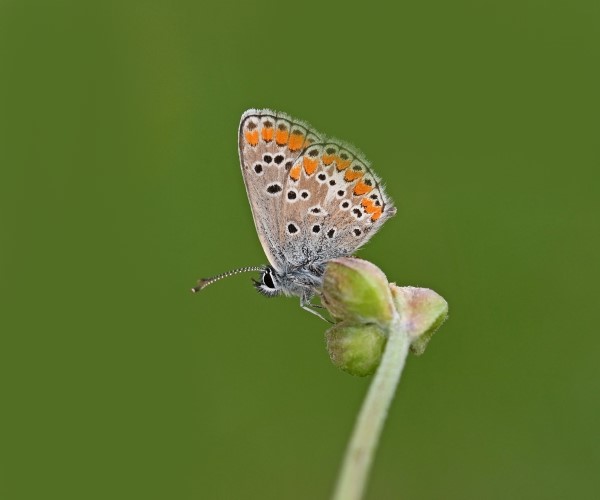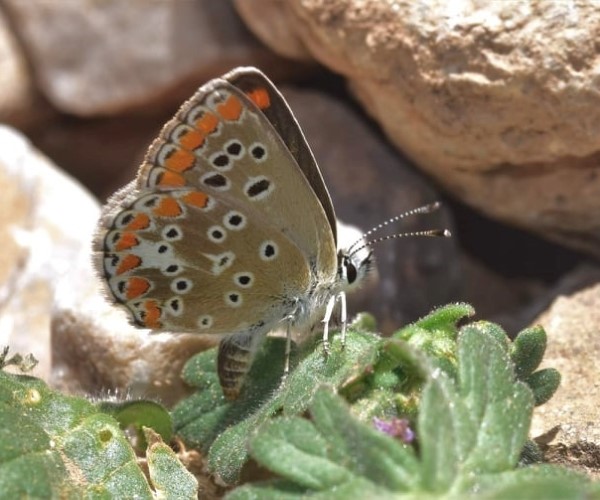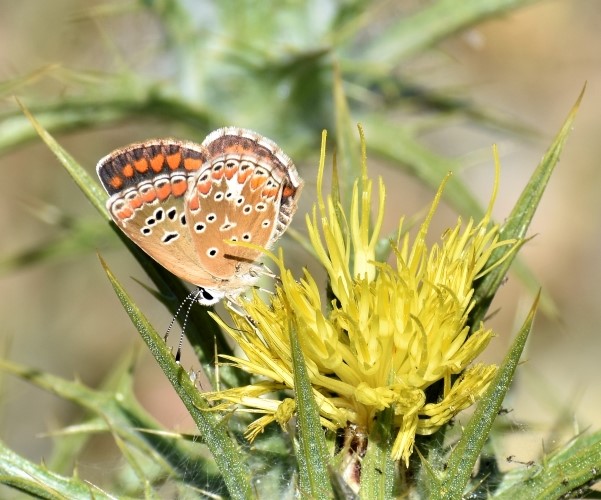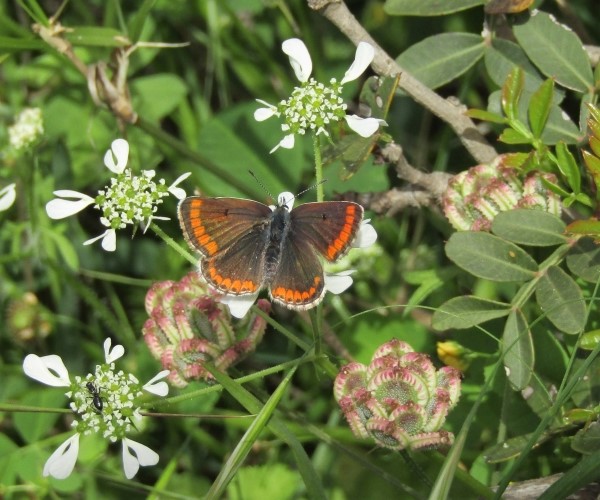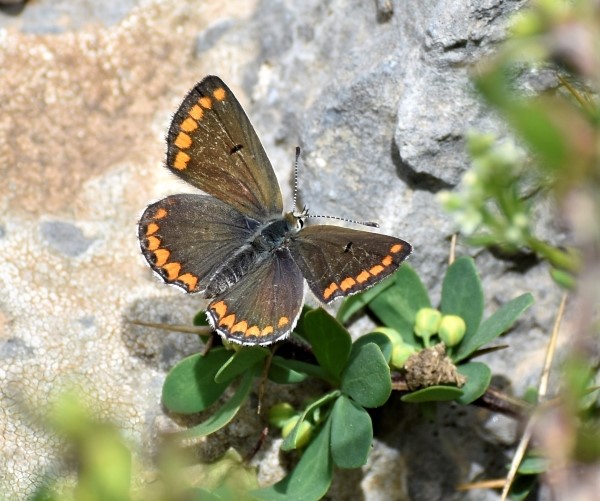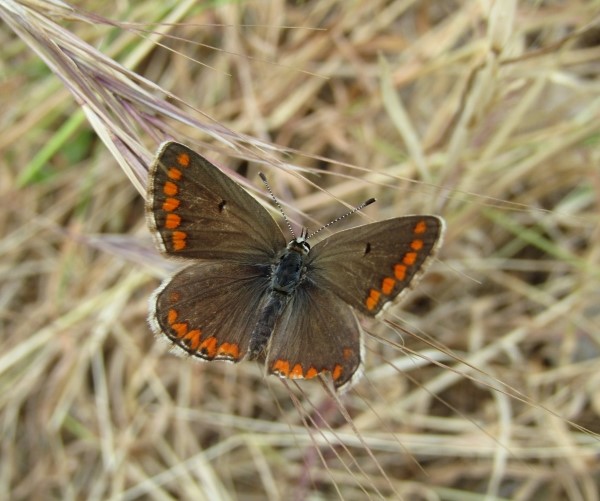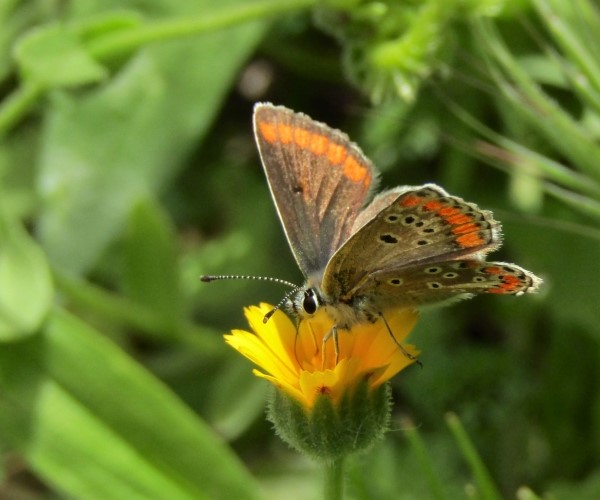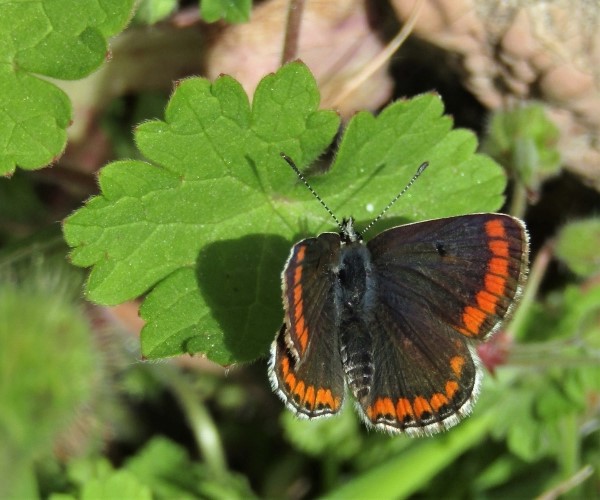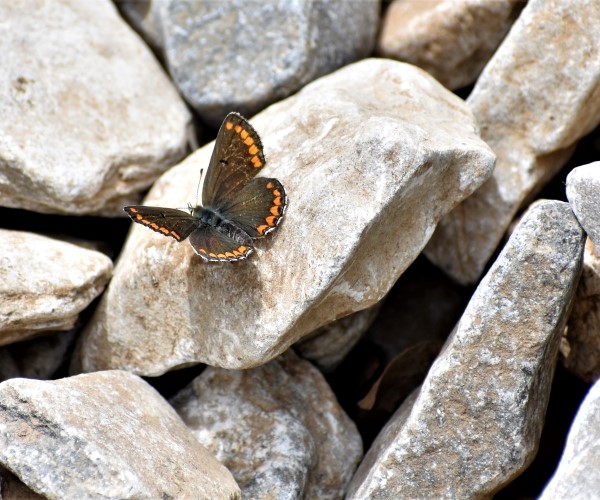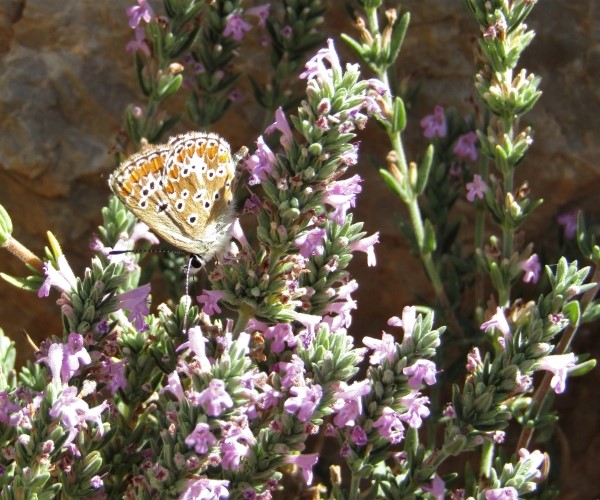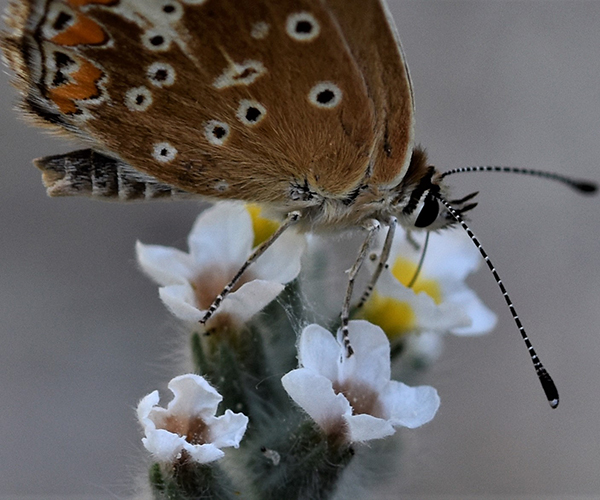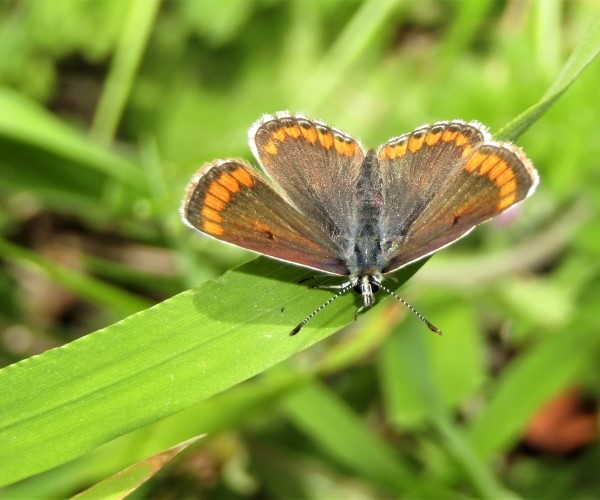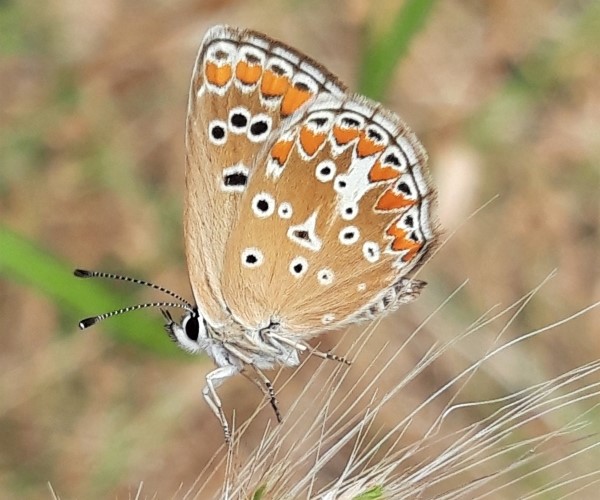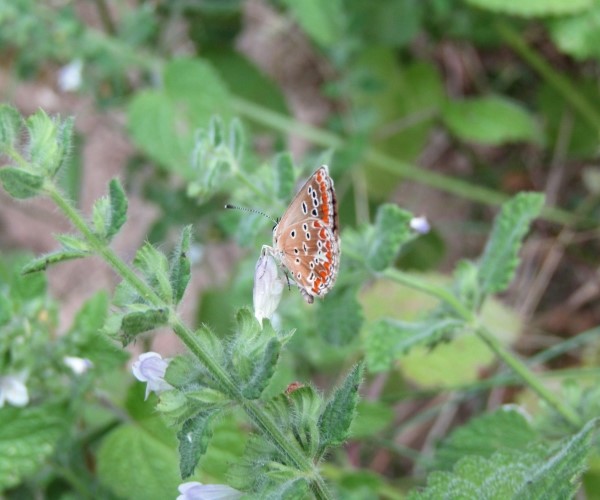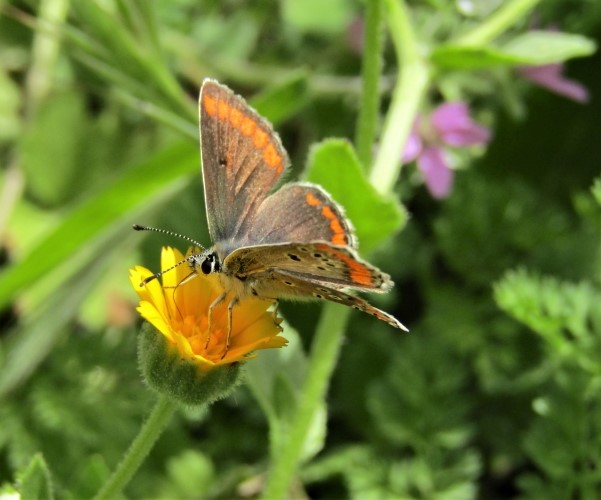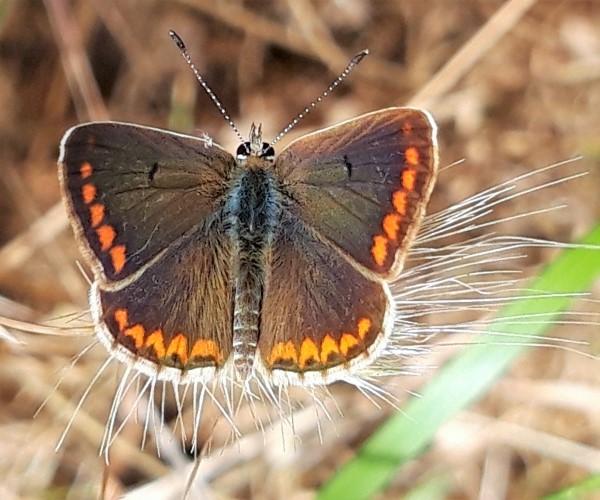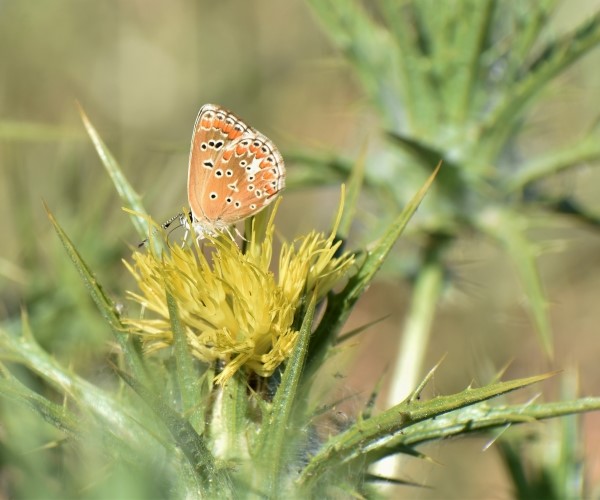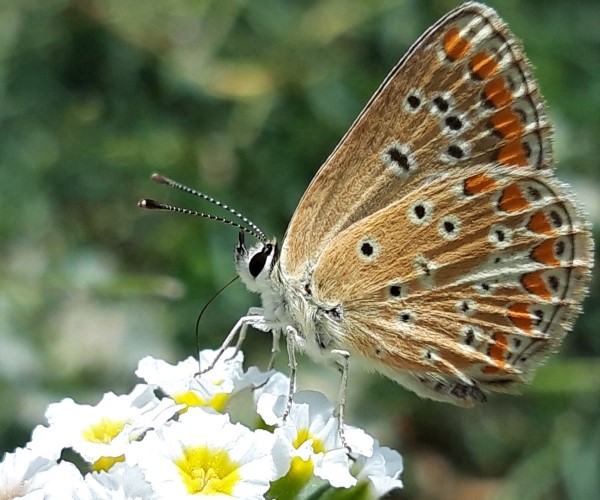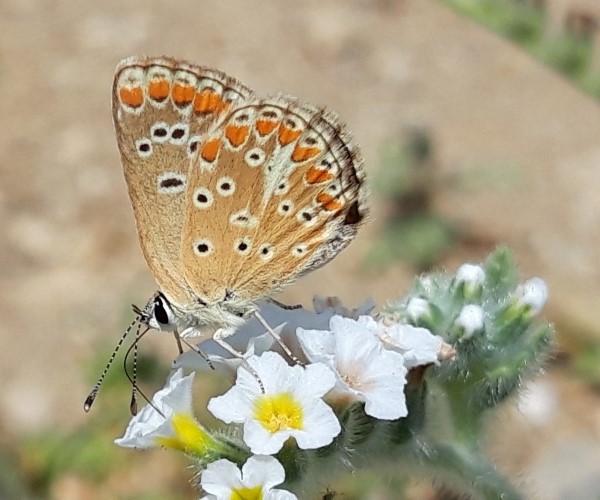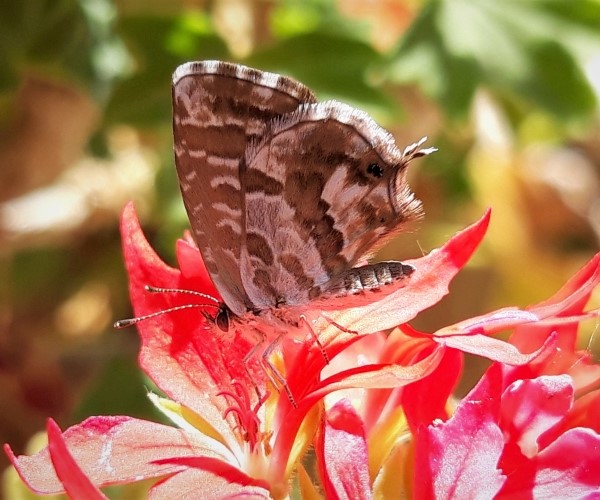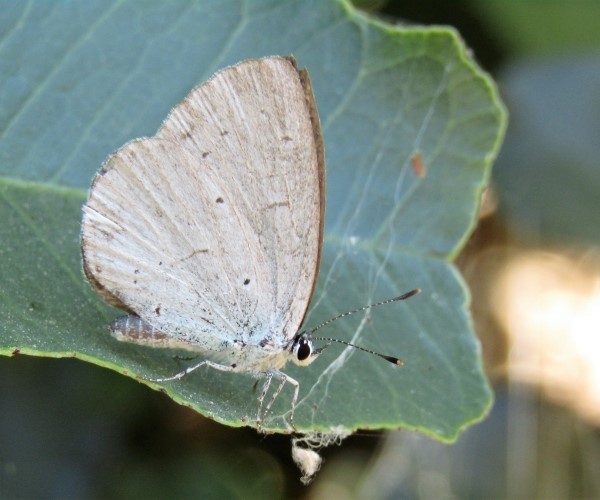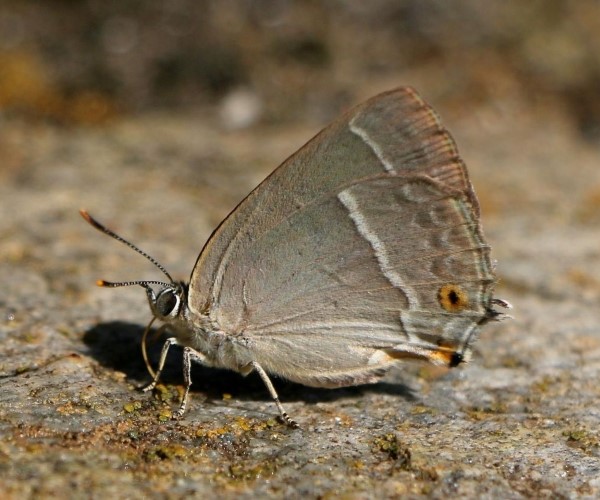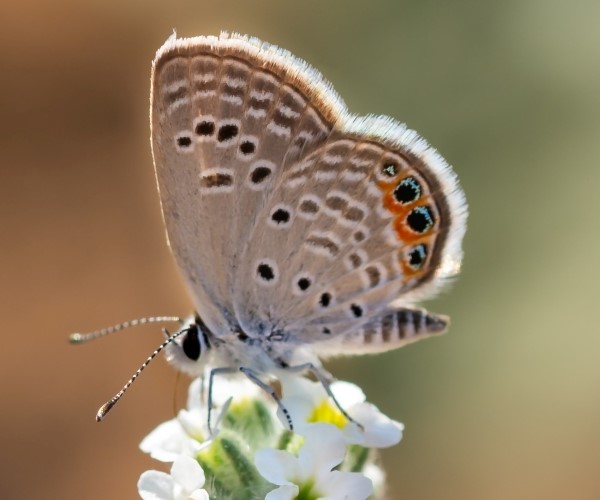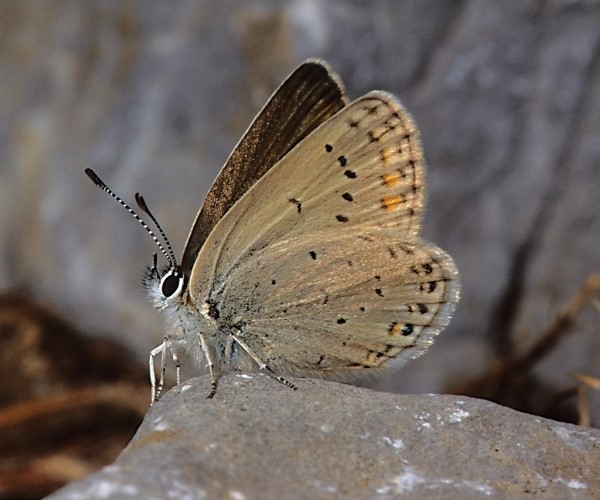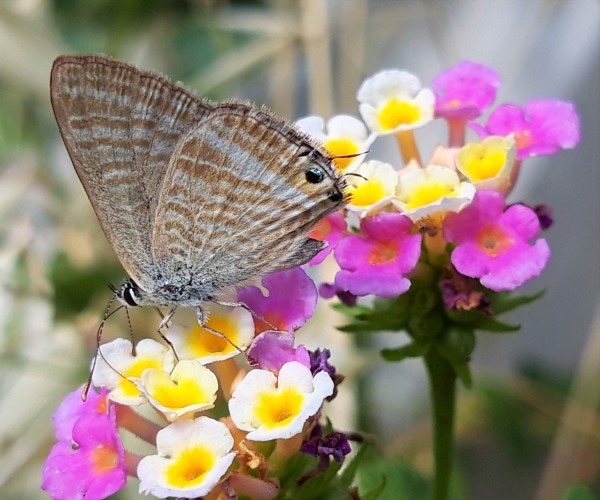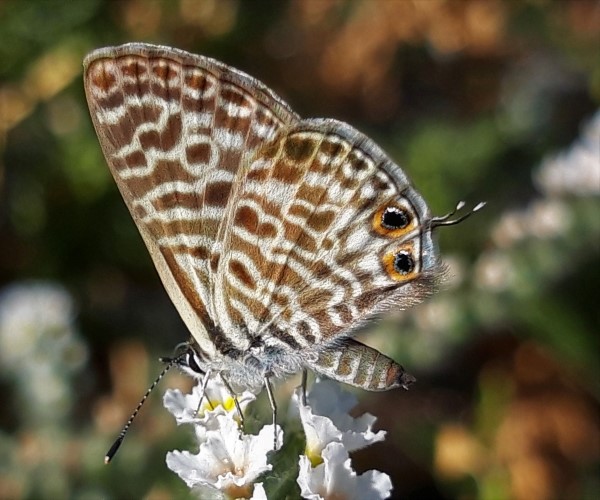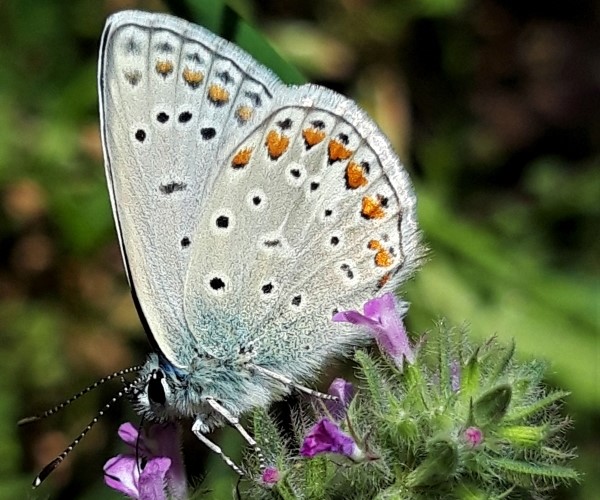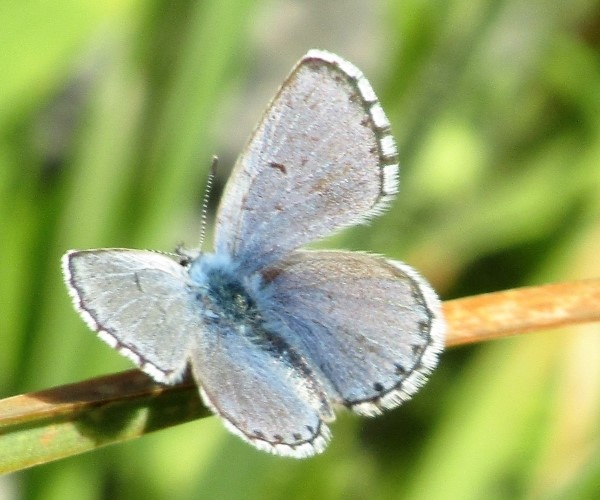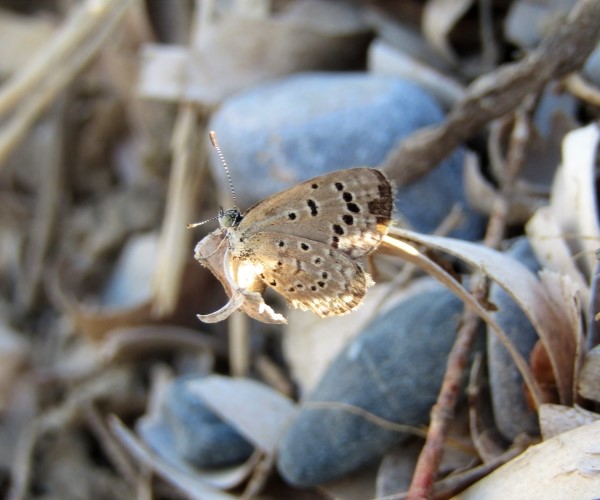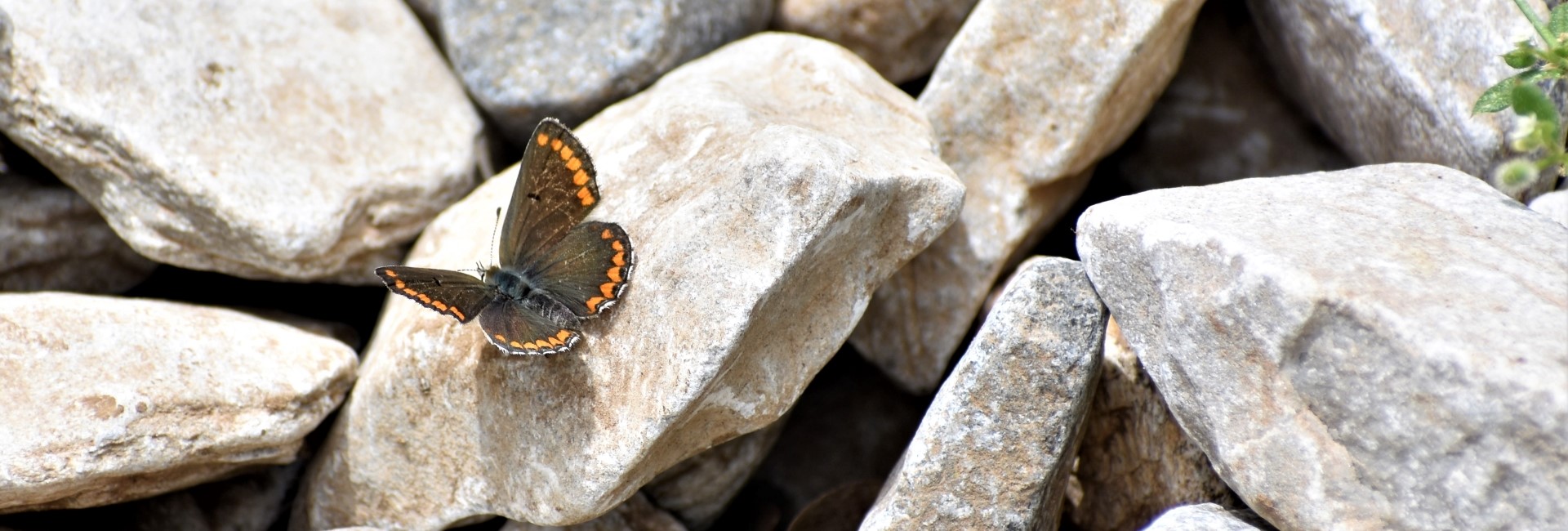
Aricia agestis, Crete - photo © Ch. Almapantakis
Aricia agestis
BUTTERFLY INFO
Aricia agestis is a butterfly of the family Lycaenidae on the island of Crete, Greece.
Scientific name
Aricia agestis (Denis & Schiffermüller, 1775)
Common name
Brown Argus
Classification
Family: Lycaenidae > Subfamily: Polyommatinae > Tribus: Polyommatini > Genus: Aricia
Wingspan
Male to female: 25-30 mm
Appearance
The upper side of this small butterfly is brown with a band of orange spots at the border of the wings in both sexes.
The underside of the wings is light brown colored, with the typical band of orange spots and several black markings forming a specific pattern.
Aricia agestis lacks the black spot near the base of the forewing that is present in the Polyommatus icarus females.
Behavior
It flies low to the ground. When the Aricia agestis is basking, it almost always settles facing head downwards with its wings open, towards the sun to absorb as much sunlight heat.
Habitat
Aricia agestis in Crete can be found in many places such as gardens, glades, orchards, rocks, single trees or copses on farmland, and sunny grassy slopes.
Food plant
The larva feeds on Geraniaceae (Erodium and Geranium) and Cistaceae (Helianthemum) plants.
Flight period
The butterfly flies in 2-3 generations per year.
| Jan | Feb | Mar | Apr | May | Jun | Jul | Aug | Sep | Oct | Nov | Dec |
Remarks
The butterfly can be easily confused with Polyommatus icarus (Common Blue) females, which also occur in Crete. Here are some useful tips to spot the difference:
- on the underside forewing, the Polyommatus icarus almost always has an extra black spot (cell spot), which is absent from the Aricia agestis.
- the apex of the forewing of Polyommatus icarus is less rounded than the Aricia agestis
- the orange lunes of Aricia agestis tend to be brighter orange, strongly defined, and larger than in a Polyommatus icarus.
- there is a more intense white streak in the center of the underside of the hindwing of Aricia agestis than in Polyommatus icarus.
Status*
Least Concern (LC)
Aricia agestis Distribution Map
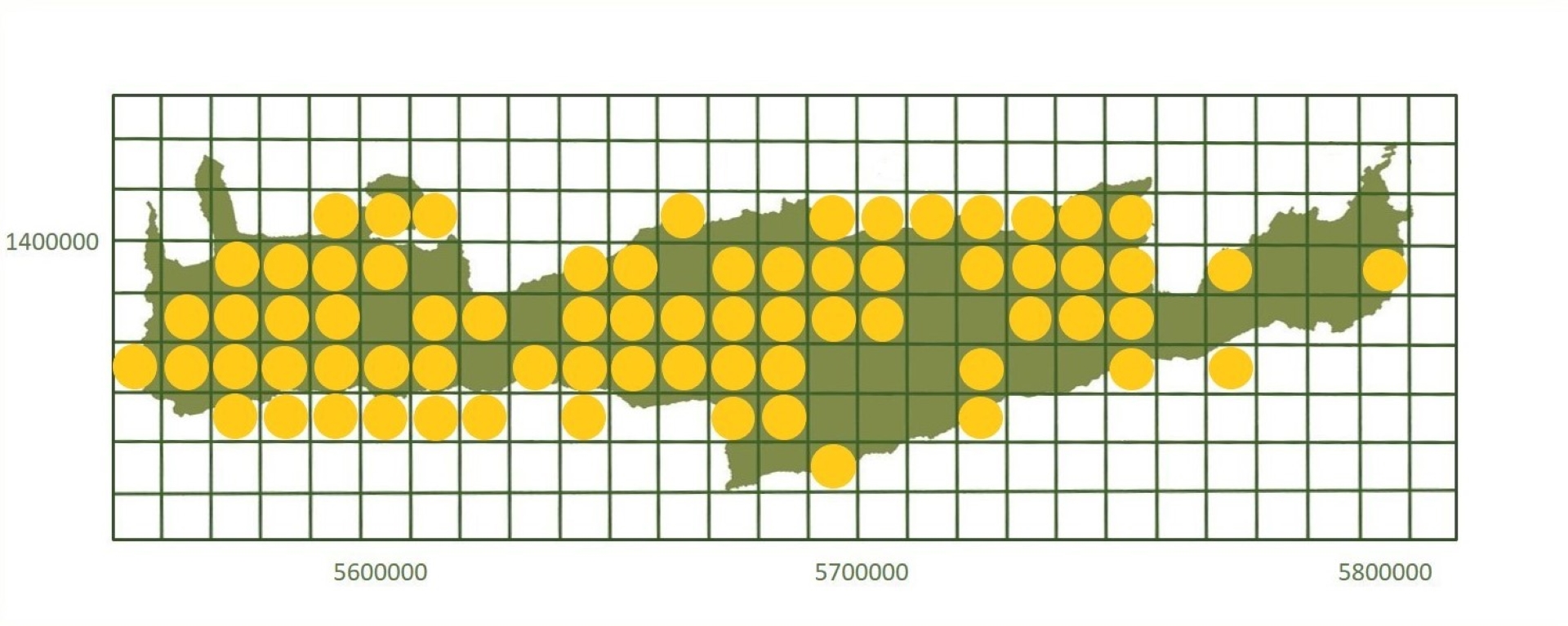
*based on http://www.pamperis.gr/THE_BUTTERFLIES_OF_GREECE/MAPS.html, updated Dec 2025 (ETRS89, grid 10X10 km)
